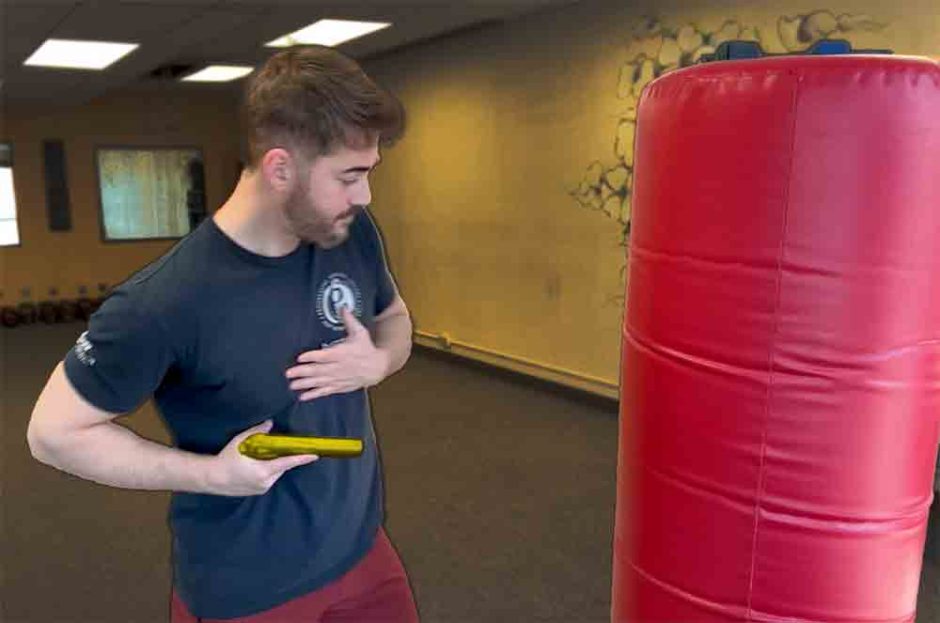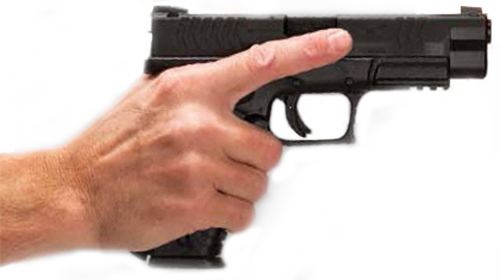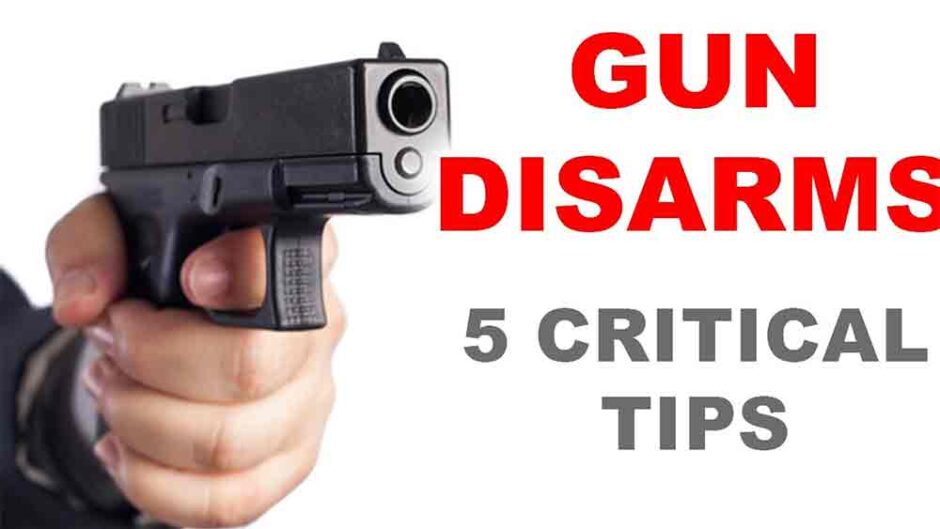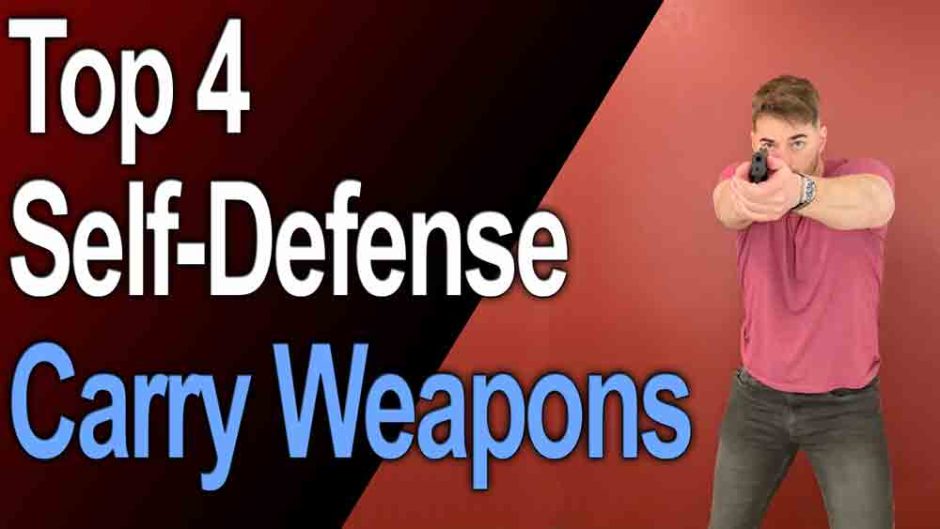Problems After a Gun Disarm
If you ever must do a gun disarm in real life, God forbid, the situation is not safe and over once you get the gun.
There are a handful of things you must train to be prepared for.
For instance:
With those things in mind we need to incorporate the following into our gun disarm training.
How to Train for After the Gun Disarm
And yes these things must be trained not just read or thought about once. You can’t possibly expect to just automatically do something under stress without acquiring A LOT of repetitions of quality training.
#1 Shield the Gun After a Gun Disarm
You were able to do the disarm because the attacker put the gun close enough where you could grab it.
Don’t you think that if you then go and put the gun close to him he could also disarm you?
Maybe it wouldn’t be as pretty. But maybe he grabs you and you both get into a wrestling match over the gun and he just happens to get it back.
WHOOPS!!!
Here is how to shield the gun after you do the disarm.

From this position you would simply move backwards until you are at least 3 big lunging steps away from the bad guy and then move on to getting the gun ready to shoot.
#2 Get the Gun Ready to Shoot
Decades ago I trained at an MMA gym with a guy named Bob. Back when Bob was in college he was a bouncer at a college bar.
One night a guy pulled out a gun on Bob and Bob disarmed the gun.
Now realize we did not train gun disarms at our MMA gym so Bob didn’t know how to disarm or what to do after a gun disarm.
Bob handed the gun off to the bartender as I recall.
Then the bad guy pulled out a 2nd gun if you can believe that!
Bob rushed in and disarmed the 2nd gun, took the guy to the ground and held him – with a scarf hold if I’m not mistaken – until the police arrived.
When the police arrived they gave Bob a high five for being a hero and told him he had better have the EMTs take a look at his gunshot wound.
Bob said, “I haven’t been shot.”
The police then asked him who’s blood was all over his shirt.
You see as Bob rushed in to disarm the 2nd gun he got shot in the shoulder area. The bullet ended up lodging against his spinal cord and Bob became paralyzed from the elbow down for the rest of his life.
Now in that moment he was full of adrenaline and endorphins so he was able to continue fighting and didn’t realize he was shot.
Now Bob is a hero but if he had kept the 1st gun he disarmed and followed the steps in this article or in the video he might not have been shot at all.
Steps to get the run ready:
#3 Safety After a Gun Disarm
I made a blog and video on the 4 universal rules of firearm safety that goes into more detail.
But here are the key points for safety after a disarm:

Much more could be said but I’ll leave that for the video.
#4 Hide the Gun After a Disarm
Last year a madman went into a grocery store with a gun and started shooting.
A citizen with a concealed firearm pulled out his handgun and shot the madman and saved a lot of people. He was a hero.
Unfortunately when the police arrived they saw the hero holding a gun and thought he was the bad guy and immediately shot and killed him.
Regardless of what liability rests on the police for not properly identifying their target prior to shooting (I wasn’t there) the bottom line is this.
You DO NOT want to have a gun visible on you when the police show up. Or when speaking to witnesses.
So the best place to put that firearm is to tuck it in your waistband in the 4 o’clock position.
That is right behind your pelvic bone. You belly button is 12 and your hip bone is 3 o’clock.
If you are left handed or carry your own firearm at 4 o’clock then put it at 8 o’clock.
DO NOT put it in appendix position! Or anywhere tucked in the front of your waistband. The muzzle will be pointed at your leg and genitals.
Why not just stash it in the trunk of your car you ask? Or in a drawer, etc.
You certainly could. I just want to be ready in the off chance that the bad guy comes back.
Now if you have your own concealed handgun then you don’t need to keep the bad guy’s weapon on you so feel free to stash it somewhere safe. If you are going to hand it off to someone then it makes sense to eject the magazine and rack the round out of the chamber so the gun is empty.
An untrained person will probably immediately put their finger on the trigger and point it in irresponsible directions. They aren’t trained so don’t expect them to behave as if they were.

Conclusion
You must know what to do after a gun disarm. So you don’t wind up getting the gun taken away, so you are ready in case of continued attack, so you can ensure yours and other’s safety, and so you don’t get shot by the police.
Remember you will not rise to the level of your expectations, you will fall to the level of your training.
Until next time,
Brian



